Hubristic Trump is due a reality check, with political reckoning to follow
After 100 days in which opposition has been non-existent, some of the normal rules of politics will start to apply.
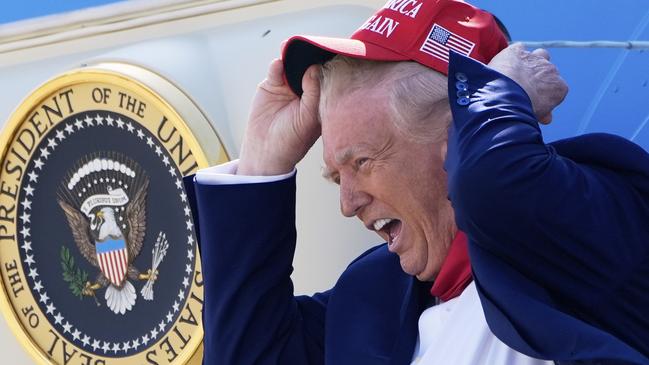
Franklin Delano Roosevelt is widely recognised as having conceived the idea of the first 100 days of a presidency as a launch pad for executive activism, as well as being its most successful exponent.
Try as they might, presidents since FDR have failed to match the energy, range and impact of the New Deal’s inception in 1933.
Most have enjoyed mixed success. Some have been outright failures.
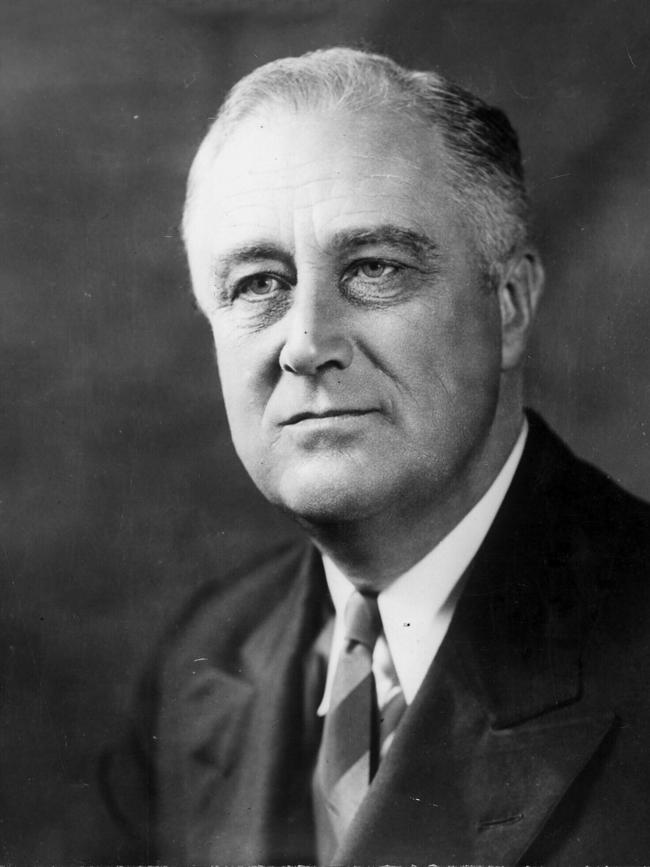
“I am not doing so bad,” quipped Bill Clinton after his calamitous first 100 days in 1993.
“I mean, at this point in his administration William Henry Harrison had been dead 68 days,” a reference to the ninth and briefest-serving president’s pneumonia-foreshortened term.
If you were looking for the cause of so much disappointment at this early stage of a presidency, you’d probably find the fatal combination of hubris and inexperience to be the most common.
Newly elected leaders of the free world are consumed with a sense of destiny and a power matched only by their lack of any experience in having wielded it.
Over time, and the corrosive effect of political and economic reality on their ambitions, their plans realign with their talents.
Some of the most ultimately successful leaders succeed precisely because of this involuntary convergence of aspiration with execution.
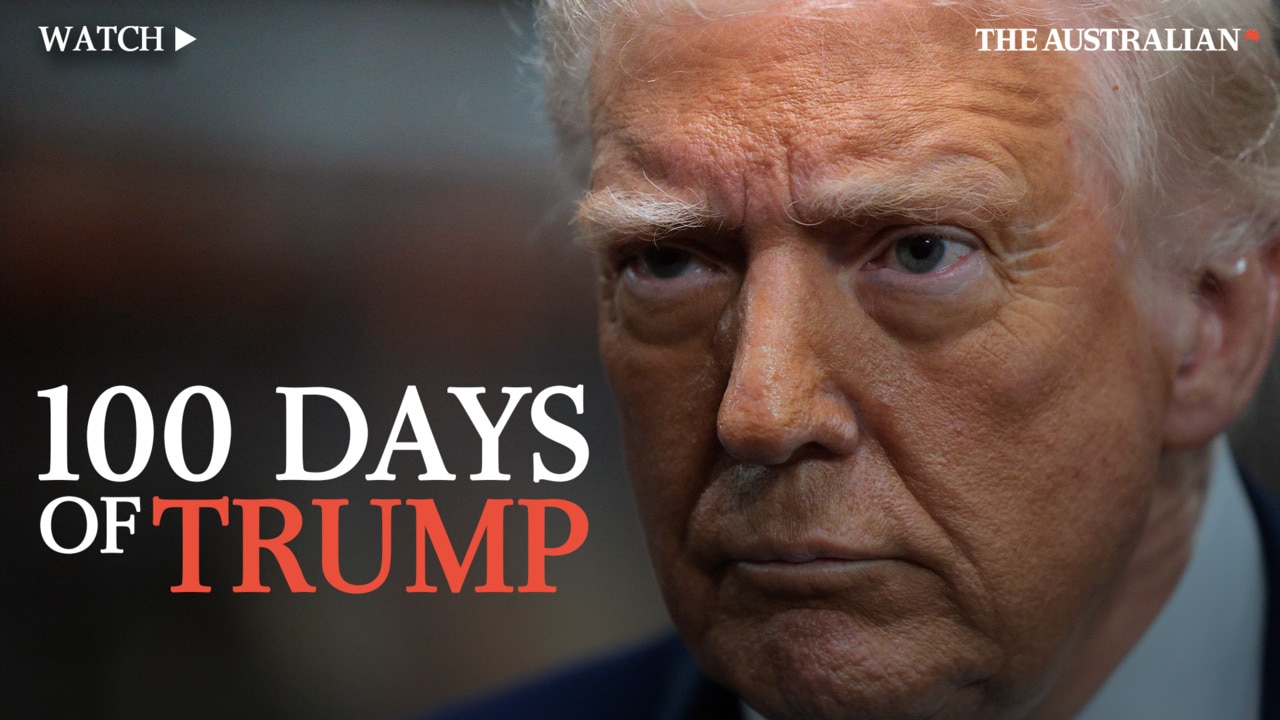
Clear agenda
Hubris and experience, on the other hand, is a rare combination.
If you’ve done the job, survived its vagaries and vexations and still believe you are the personal agent of national salvation then you are an uncommon figure; either perhaps a unique genius, alone equipped to move the world off its axis, or an even bigger fool, destined for larger failure than any of those who have come before you.
It is this combination of vaulting self-confidence and familiarity with the possibilities and perils of the presidency that best captures both the uniqueness of the second first 100 days of Donald Trump and the towering uncertainty about what they presage for the next three and a half years.
The 47th president is the first in more than a century to win a second term after a period in the wilderness.
This time, unlike the last, he has taken office with a clear agenda, backed by a team of fierce loyalists committed only to doing his will, with a party in control of the legislative branch that is almost completely united around his personal leadership.
Major ambition
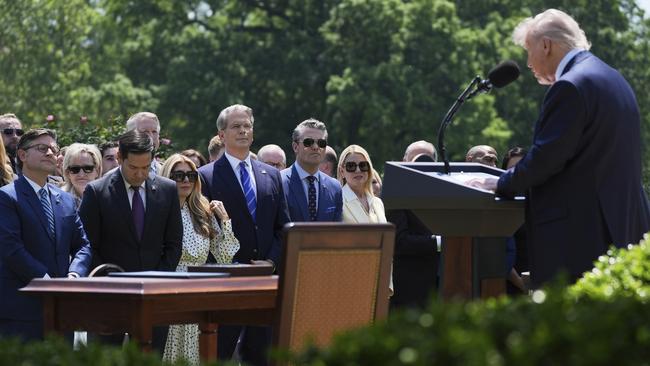
But the ambition is much greater than it was eight years ago.
Even his critics will admit that Trump has had the most consequential presidential launch since FDR.
Through executive orders, some of dubious legality, he has sought to remake the American national order – of the economy, immigration and citizenship; the leading cultural institutions, such as universities and the media; and the role of race, gender and identity in social and economic relations.
Through diplomatic initiatives he has attempted to create a new geopolitics in which the US no longer presides over a global liberal order but pursues its own national interests aggressively, even rapaciously.
Having initially applauded much of this revolutionary activity, Americans now seem increasingly antsy about it.
Tide turning
A slew of polling to mark his 100 days shows a sharp deterioration in his standing.
On the day he took office, the Real Clear Politics polling average indicated his popular approval, at just over 50 per cent, was higher than at any point in his first term.
This week his approval rating is lower than any president’s at the 100-day mark, except one – Trump in his first term.
The reason is simple: while voters register some qualms about the heavy-handed way Trump has gone about reducing illegal immigration, tackling entrenched bias in universities, the law or the media, they seem to like the general direction of those policies.
They’re expressing unease about the way he rides roughshod over allies but still trust him to defend US interests.
But his “liberation day” tariffs, the economic damage they seem already to have inflicted and the chaotic reversals and re-reversals in policy that have followed, have alarmed voters.
Disapproval rises

Trump took office with strongly positive rates on handling the economy. Now, in some polls, almost three in five voters disapprove.
Despite performative shows of unity in his top team, signs of strain are starting to emerge.
On Wednesday, the president hosted a rare cabinet meeting, an opportunity for his team to make public, televised declarations of fealty to the boss.
On this occasion, none surpassed the performance of Pam Bondi, Trump’s attorney general, who declared that under his presidency, federal agents had already seized 3400 kilograms of fentanyl. The president, she said, had therefore “saved 258 million lives”.
As those around the table nodded approvingly at the claim that Trump had saved more than three-quarters of the US population from a horrible death in just three months, others weighed in.
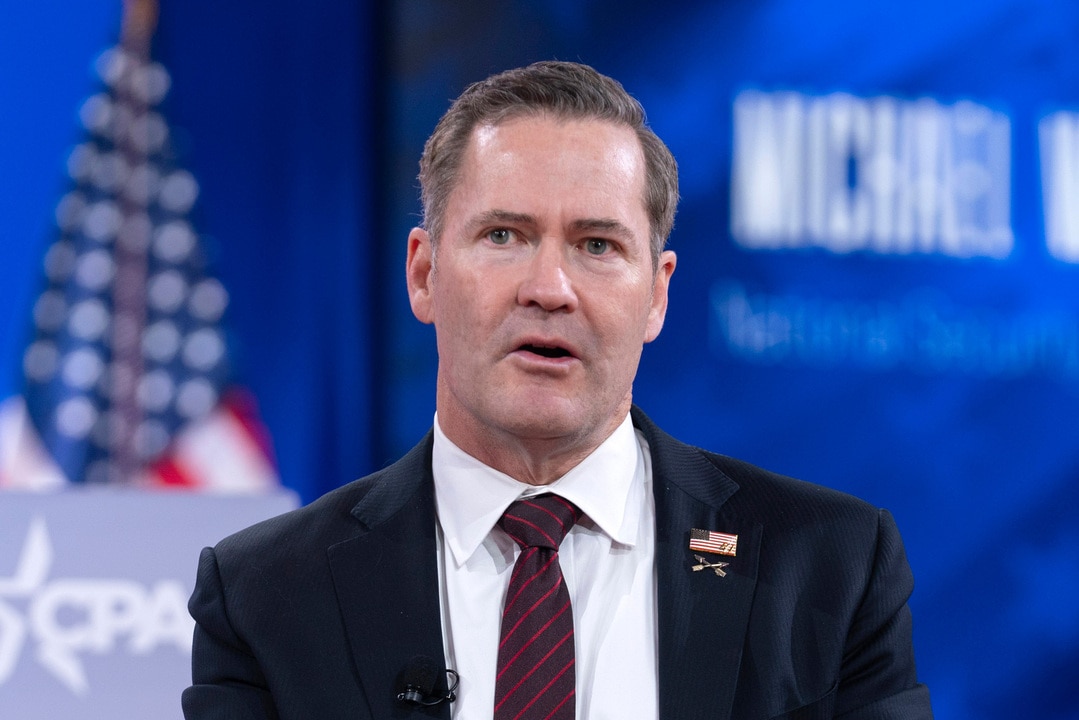
Safe passage
Mike Waltz, the national security adviser, seated behind a “Gulf of America” baseball cap, praised Trump’s “strength”, and said the world “was far better, far safer, for it”.
The world may be safe, but Waltz evidently wasn’t.
The next day he was dumped, the apparent victim of an internal power struggle. It comes roughly a month after Waltz put a journalist on a group text chat in which advisers discussed a sensitive military operation.
For previous presidents, constraints on their hubris have typically been constitutional and political.
Normally, even when a president’s party controls Congress he meets resistance.
Normally, the law and the constitution limit presidential power.
Normally, a vast diverse and pluralist nation proves immune to change by executive order.
For Trump, none of these constraints seems to exist. But one remains: the limitations imposed by objective reality.
Economic laws and international truths are not as easily abrogated by presidential will. Political reckoning will surely follow.
The Times







To join the conversation, please log in. Don't have an account? Register
Join the conversation, you are commenting as Logout